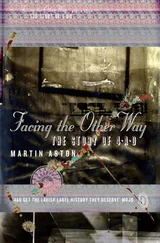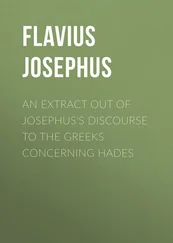“It isn’t really as bad as it looks,” she said, leaning back and drawing a deep breath. “I’ve only two Opinions and a Statement of Claim to do, and Sebastian isn’t collecting me until five o’clock. I ought to have finished them by then — in manuscript, that is. Having them typed depends on the temporary typist.” Her optimism seemed to fade a little. “Still, if the worse comes to the worst, they can be typed next week, and Julia can sign them off for me.”
I inquired if Julia was any better than she had been when I last saw her — that is to say, whether she had recovered at all from her anxiety about Deirdre and the traditions of the English Bar and so forth.
“No,” said Selena, after a moment’s reflection “No, I don’t think one could say she was better. It would be more accurate to say”—she paused in apparent search for the mot juste —“that she’s worse. Yes, considerably worse. It’s all Cantrip’s fault. His friend on the Scuttle reminded him that Rupert Galloway was one of the people involved in that unpleasant business at Rustington a few years ago. Do you remember anything about it?”
The Rustington affair had been one of the more colorful scandals of its day; but though at the time I had followed it with interest I did not now recall the details. A number of moderately celebrated persons — bankers, politicians, television panellists and so forth — had enjoyed the hospitality of a well-known businessman at his house on the Sussex coast; the festivities had been of an unconventional and boisterous nature; and a girl had died, apparently by drowning. Some rather unsavory suggestions had been made as to the cause of death, though none, if my memory served me, of deliberate murder. I did not, however, remember any mention of Rupert in connection with the affair.
“I don’t imagine,” said Selena, “that he was distinguished enough to attract much notice in the newspapers, but he was certainly among the guests. Well, Cantrip told Julia, and Julia thinks it’s significant — she won’t believe that Rupert’s presence on two occasions when young women have met with unnatural deaths is merely an unfortunate coincidence. And she feels that something should be done.”
I said that I was sorry to hear it: I had rather hoped that Julia would by this time have forgotten about the whole matter.
“By no means,” said Selena. “So it’s very fortunate, Hilary, that you’re in London again: you can reassure her that you’re still investigating and all the resources of scholarship will be devoted to discovering the truth. I think you should go straight round to 63 and tell her so — it will be a great comfort to her, and leave me free to get on with my paperwork.”
In 63 New Square, however, I was told by Julia’s Clerk that she had as yet made no appearance there: in the afternoon, he added with touching confidence, I could be sure of finding her, since she had an important conference at half past two; but of her present whereabouts he had no idea.
Selena, when I returned with these tidings, was too much preoccupied to express any great curiosity. She was correcting the most recent product of the skills of the temporary typist — an Opinion on the title to certain freehold land comprised in the estate of an ancient and noble family — and the task seemed to be distressing her. She took particular exception, as I recall, to the description of the fifth Earl as the sun and air of the fourth.
“I could understand it,” she said in the tone of one trying hard to be reasonable, “if I had been dictating. Muriel has been typing for us, after all, for only six months, and cannot be expected to be familiar with technical terms. But how does she manage to do it when she’s simply copying from manuscript? ”
It was, I explained, an instance of the phenomenon known to students of textual criticism as dictation interne— the copyist, mentally repeating the words of the original, copies them not as he sees them but as he imagines hearing them — it is a fruitful source of error.
“Most interesting,” said Selena. “Some da y, Hilary, you must tell me all about it. Some day, that is, when I don’t have a plane to catch and three sets of papers to finish.”
I sought in vain to persuade her that she should pause from her labors for a light but nourishing lunch in the Corkscrew: she had brought sandwiches, and proposed to eat them at her desk. The other members of the Nursery being all engaged in court, I resigned myself to lunching alone.
On my way down the steps of 62 New Square, however, I encountered Ragwort, returning from the Law Courts in triumph: he had been applying, I gathered, for something called a Mareva injunction, and despite the perjured evidence and meretricious argument deployed against him, had succeeded in obtaining it. He was sufficiently elated to be prevailed on to join me in the Corkscrew.
I listened with attentive admiration to the full details of his victory; but towards the end of the meal I made some passing reference to Julia’s absence from Chambers. Ragwort frowned.
“One would not wish,” he said, “to speak critically of one’s friends. It has to be admitted, however, that Julia is not wholly free of the sin of sloth. If she woke up this morning and found herself with no immediate engagements, it is quite possible that she simply went back to sleep again. And she is capable, in that case, of failing to wake up again in time for her conference at two-thirty, which I understand to be rather important. Shall we stroll along to Bloomsbury and make sure she’s up and about?”
“By all means,” I said. “It will be an opportunity to see Carlotta, which is always delightful.”
Julia occupies as her residence the top story of a dilapidated Victorian house near the British Museum, owned by the celebrated historical novelist Carlotta Benares — my readers will doubtless be familiar with her work, though a tendency to emphasize the more sentimental aspects of history has prevented her enjoying the critical esteem which would be the just reward for her painstaking research. I am always pleased to see her, for we have several enemies in common.
She greeted us in her customary splendor of black lace and topaz, and offered us madeira and macaroons. Ragwort is a favorite in her affections, for she regards him as being “the right man for Julia”: she does not know, I think, that he has rejected Julia’s matrimonial proposals with as much firmness as those of a less honorable nature. Myself also she greeted with great goodwill, being eager to know my opinion of a colleague in the world of Scholarship who had written unfavorably, in a review of her most recent novel, of her understanding of military tactics in the reign of Richard III. The same man, as it happened, had once published an impertinent comment in one of the learned journals on a little article of my own concerning the statute De Donis: I was happy to assure Carlotta that he was a person of no intellectual consequence, and reported by a reliable source to change his underwear only once a year.
Of Julia, however, there was no sign. At about half past eight on the previous evening she had triumphantly announced that she had at last finished her Opinion on Part XV of the Taxes Act and intended to reward herself with dinner at Guido’s: Carlotta had not seen her since and was beginning to be anxious.
Returning once more to 62 New Square, we found Selena in not wholly amicable discussion with the temporary typist, who seemed to feel that she was being unduly critical of a newly typed Statement of Claim.
“You did say,” said the temporary typist, in a tone of accusation, “that you wanted it in a hurry.”
“Yes,” said Selena. “Yes, Muriel, it’s quite true I said that. But I didn’t actually mean that I wanted you to leave bits out.”
Читать дальше












